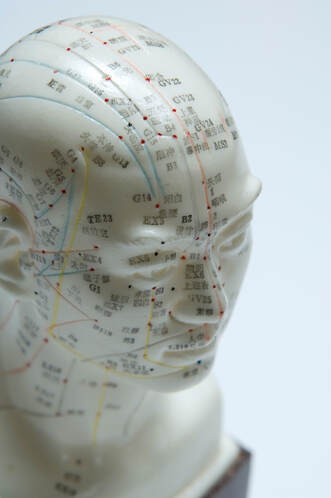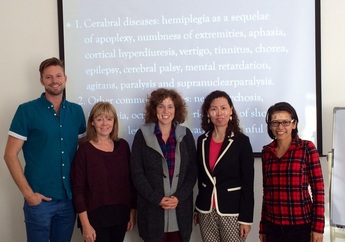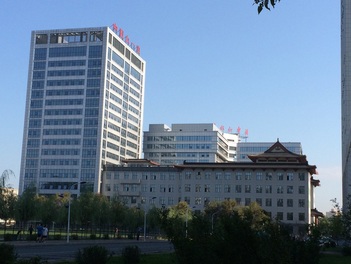
This progressive neurological disease - characterised by tremor, muscle rigidity, slowness of movement, and impaired balance and co-ordination (think about Muhammad Ali's last public appearances) - has no cure. Medications used to control the symptoms (dopaminergic drugs that mimic the action of dopamine) stop working after a while and have severe long-term effects on the nervous system such as nausea, confusion and hallucinations.
Enter scalp acupuncture, which I learned at the Heilongjiang University of Chinese Medicine when I was doing my hospital placement in 2014. Up to that point, I had been learning traditional acupuncture, whose origins can be traced back to ancient China more than 2,500 years ago. Scalp acupuncture is a relatively new kid on the block, developed in China in the 1950s. It integrates traditional Chinese needling methods with Western medical knowledge of the areas on the scalp that correspond with the central nervous system's functions (such as motor activity, sensory input, vision, speech, hearing and balance).*
It just so happened that in that part of northern China where Heilongjiang is located, the incidence of strokes is the highest in China. The explanation I heard over and over was this was due to the high rates of smoking and alcohol consumption, and the high-fat diet (think foods that are mostly fried). As a result of the high number of stroke patients, the Chinese medicine hospitals became very good at rehabilitating post-stroke patients. Doctors used a combination of Western medicine drugs, Chinese medicine herbs, physical therapy, Chinese medical massage, body acupuncture, and scalp acupuncture.
(As an aside, a 2010 documentary called 9,000 Needles by an American filmmaker, Doug Dearth, chronicles his brother Devin's journey after Devin suffered a massive stroke. When he couldn't get the care he needed in the US, he travelled to a hospital in Tianjin in China, where he is treated with acupuncture.)
There is evidence that scalp acupuncture is effective for the treatment of Parkinson's disease, although larger-scale trials are needed. However, I can say that after five acupuncture sessions, my PD patient shows better movement, less tremor, and improved energy levels and mood. PD is a cruel degenerative disease, but I believe that with scalp and body acupuncture, the quality of life of someone with PD can be greatly enhanced.
* Hao, J.J. and Hao, L.L. (2011) Chinese scalp acupuncture. Boulder, Colorado: Blue Poppy Press.


 RSS Feed
RSS Feed